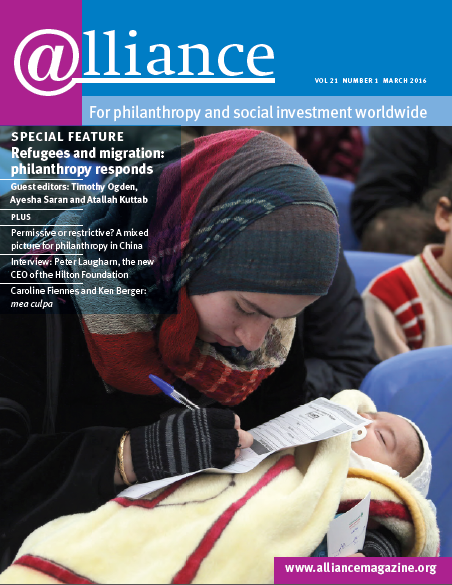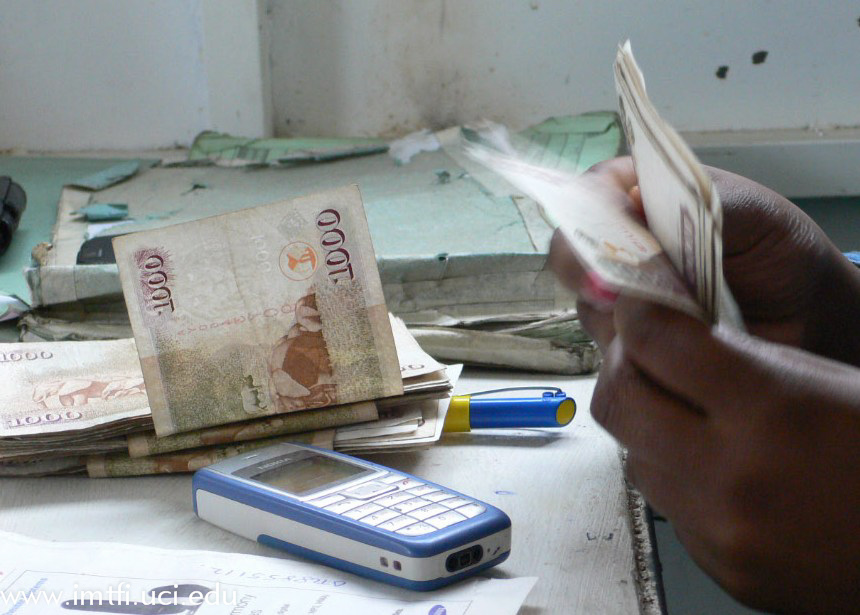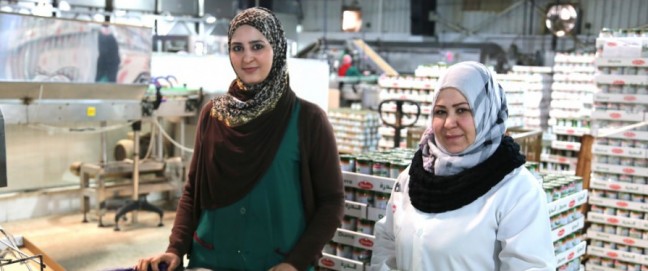As the International Federation of the Red Cross notes, ‘migration is certainly not a recent phenomenon … on the contrary, it has been part of human history since its very beginning. People have migrated from one continent to the other, from country to country or internally, inside the same country.’ It is arguably the single most pertinent factor in creating diversity and advancing civilization. I want to argue that one by-product of the process – diaspora philanthropy – is an important feature of development and has potential economic benefits not only to host countries but also to migrants’ countries of origin.
The economic case for migration has been frequently made. The Center for Citizen Participation in the African Union (CCP-AU) argues that ‘just as removing barriers to the free movement of goods enhances trade and economic integration, removing barriers to the free movement of people enhances deeper levels of socio-economic cohesion and integration amongst nations and regions’.[1]
The Commission on Growth and Development (2010) estimates that a complete liberalization of labour would result in a doubling of current GDP (a gain of $65 trillion).
Diaspora philanthropy and development
Apart from the gains made by migrant-receiving countries, remittances are an increasingly important part of development funding. Migrant labour is a large source of cross-border monetary transfers in the African Union, while remittances are critical for the development of families and communities in the sending countries (Africa had 19 million of the estimated global population of 232 million migrants in 2013). In 2012 the UN Economic Commission for Africa noted that remittance inflows in Africa had quadrupled between 1990 and 2010 to nearly US$ 40 billion, equivalent to 2.6 per cent of continental GDP in 2009. Similarly, one study of Filipino hometown associations in Canada[2] calls diaspora philanthropy a ‘migrant-led initiative’, an underappreciated but emerging opportunity to convert private wealth to developmental capital which can be used in the country of origin. The case for migrants as future diaspora philanthropists is strong.
‘Apart from the gains made by migrant-receiving countries, remittances are an increasingly important part of development funding.’
The role of indigenous philanthropy
But before migrants can become philanthropists, they need to be settled and in a position to give to their countries of origin. This is where philanthropy in the host country comes in. Grantmakers Concerned with Immigrants and Refugees (GCIR) notes that ‘the successful integration of immigrants in the early twentieth century was shaped significantly by US philanthropy’, possibly because some of the major pioneer philanthropists were themselves immigrants. GCIR cites the example of Andrew Carnegie, a Scottish immigrant, who went on to found nearly 1,700 public libraries.
‘Before migrants can become philanthropists, they need to be settled and in a position to give to their countries of origin.’
GCIR has also developed an Immigrant Integration Framework, which is among the key philanthropic efforts to support immigrants. This suggests that:
‘… foundations can consider a range of grantmaking strategies depending on their funding approaches, issue priorities, geographic focus, and goals. By incorporating immigrants into their grantmaking priorities, they can draw upon myriad strategies for community building and social change that philanthropy has long supported. These strategies include but are not limited to: direct services, capacity building, community outreach and education, leadership development, organizing, advocacy, legal assistance, research, policy analysis, communications, media, and litigation.’
In short, migration is one of the most effective tools for reducing global poverty. To take advantage of the opportunity it offers, migrants need legal status, protection of their rights and the opportunity to prosper. Philanthropists must boldly support this cause.
McBride Nkhalamba is head of programmes at the Southern Africa Trust. Email mnkhalamba@southernafricatrust.org





Comments (0)